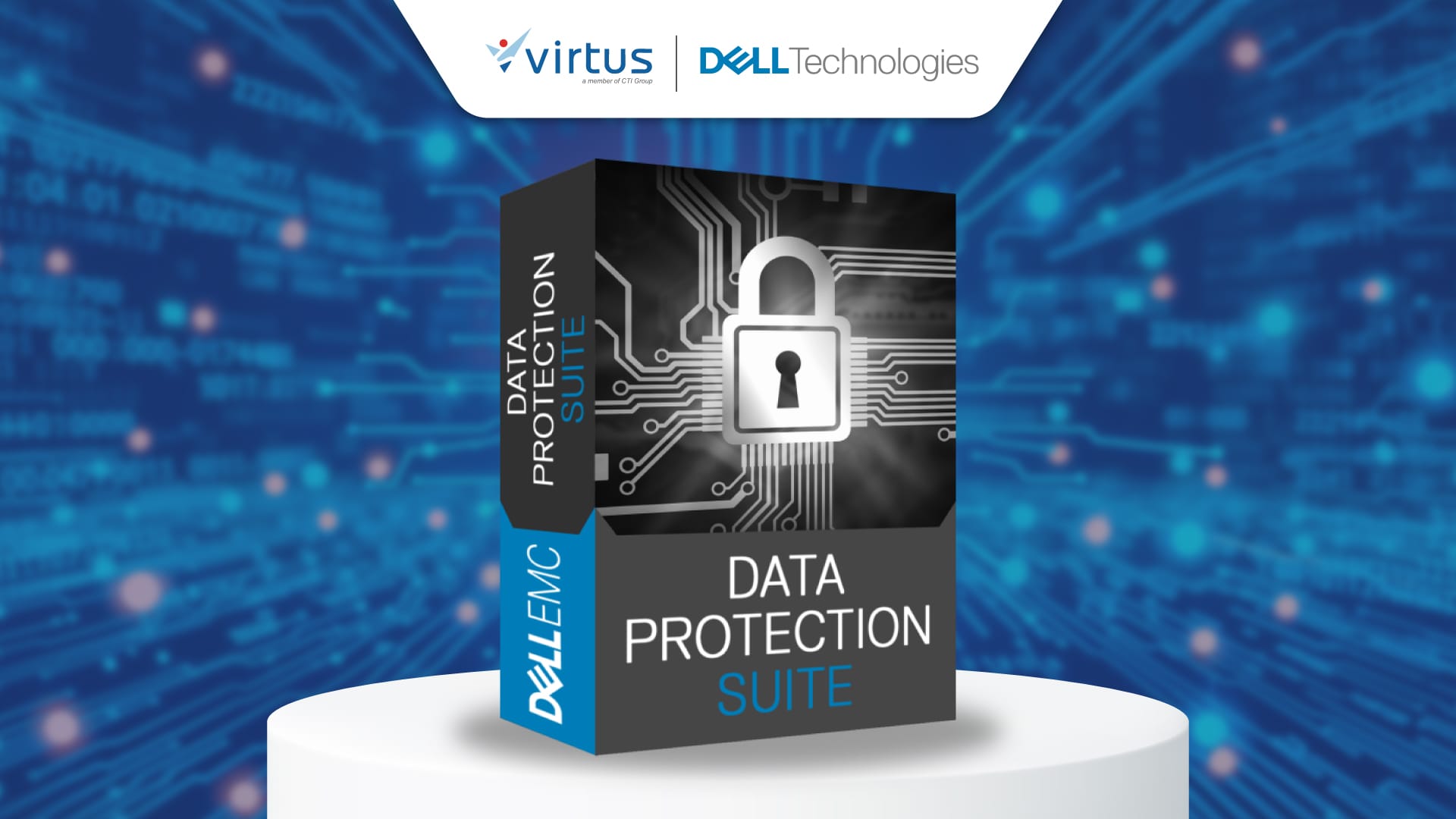In today’s increasingly complex digital era, data has become one of the most valuable assets for every organization. Unfortunately, as our reliance on technology grows, so do the threats to data security. Cyberattacks such as ransomware, phishing, and identity theft can cause significant financial losses, reputational damage, and even business disruptions. Therefore, data security is a top priority for any company.
But what exactly is data security, why is its implementation crucial for organizations, and what are the best practices for ensuring it? Read on for an explanation in the article below.
What is Data Security?
Data security refers to the practice of protecting digital data from unauthorized access, theft, or damage throughout its lifecycle. This involves various measures such as encryption, access controls, and security policies to ensure the integrity, confidentiality, and availability of data.
In a business context, data security is crucial for safeguarding sensitive information such as customer data, trade secrets, and financial records. By implementing effective data security measures, companies can prevent financial loss, reputational damage, and legal issues that may arise due to data breaches.
What Are the Benefits of Using Data Security?
Implementing data security within a business has several key benefits:
- Protection of Sensitive Information: Keeping customer data and business information secure from unauthorized access.
- Regulatory Compliance: Ensuring the company complies with data protection laws and regulations, such as GDPR or HIPAA.
- Prevention of Financial Loss: Avoiding the costs associated with data breaches, including fines and loss of revenue.
- Maintaining Company Reputation: Building trust with customers and business partners through a commitment to data security.
Common Threats to Data Security
Despite many steps that can be taken to secure data, threats continue to evolve as technology advances. Some major threats to be aware of include:
Cyberattacks
Cyberattacks are a very real threat in the digital age. These can come in the form of viruses, malware, ransomware, or Denial-of-Service (DoS) attacks that target data systems. These attacks can damage systems and steal sensitive information. For instance, ransomware can encrypt business data, forcing companies to pay a ransom to retrieve it.
Data Breaches
Data breaches occur when sensitive data is exposed or stolen by unauthorized parties. These breaches can be caused by external attacks or internal errors, such as employee negligence. Leaked data may include personal customer information, company financial records, or strategic business data, which can harm reputation and customer trust.
System Vulnerabilities
Every system or software used by a company may have its own vulnerabilities that can be exploited by hackers. These vulnerabilities may come from imperfect code, outdated hardware, or improper configuration.
5 Examples of Data Security Implementations
Effective data protection can involve several steps and tools to ensure that data is well-protected against both internal and external threats. Some examples include:
Data Encryption
Using encryption techniques to ensure that data being transmitted or stored cannot be read by unauthorized parties.
Firewalls and Intrusion Detection Systems
Firewalls and Intrusion Detection Systems (IDS) help prevent cyberattacks by monitoring and restricting access to the company’s network.
Two-Factor Authentication (2FA)
By adding an extra layer of security, 2FA ensures that only authorized individuals can access sensitive data.
Data Backups
Regularly backing up data to ensure that lost or corrupted data can be restored.
Access Controls
Restricting access to data only to those who need it to perform their duties, reducing the risk of data breaches.
Comprehensive Data Protection Measures

Steps to minimize the risk of data leaks include the use of encryption, regular security audits, and implementing early detection systems that can monitor and respond to suspicious activities in real time.
Security system weaknesses, such as software bugs, improper configurations, or outdated hardware, often become entry points for hackers. The following steps can help address these vulnerabilities:
- Ensure software is updated with the latest security patches.
- Implement the “least privilege” principle to limit user access.
- Use Two-Factor Authentication (2FA) to strengthen login security.
Read More: Why Cloud Security Matters: Protecting Modern Enterprises from Evolving Threats?
Effective Strategies for Enhancing Data Security with Dell DPS (Dell Data Protection Suite)
Dell Data Protection Suite (DPS) is a comprehensive data security solution designed to help businesses protect, manage, and recover business data efficiently and securely. DPS includes a variety of tools and technologies that support end-to-end data protection, from encryption to backup and data recovery. This solution is tailored to meet the needs of modern businesses that increasingly rely on digital data and require robust security systems against cyber threats and data loss.
As part of Dell Technologies’ data protection solutions, DPS offers high flexibility with support for various platforms and environments, including on-premise, virtual, and cloud. This ensures that businesses can protect their data across their IT infrastructure without worrying about compatibility or integration.
The main advantage of Dell DPS is its ability to provide integrated protection with the company’s security system. With features like automatic backup and strong encryption, DPS allows businesses to secure sensitive business data from external threats like ransomware and malware, as well as internal threats like human errors or hardware failures.
What Are the Features and Advantages of Dell DPS?
Automatic Data Encryption
Dell DPS provides robust data encryption features to protect sensitive information both at rest (data-at-rest) and during transit (data-in-transit). This technology ensures that data is only accessible by authorized parties, even if devices or files fall into the wrong hands.
Advanced Backup and Recovery
DPS offers flexible backup solutions and fast data recovery. This feature is crucial for minimizing downtime and ensuring business continuity after incidents such as cyberattacks, natural disasters, or hardware failures.
Centralized Policy Management
With DPS, businesses can manage security policies via a centralized platform. This feature simplifies role-based access control (RBAC) setup and ensures that only authorized users can access sensitive data.
Ransomware Protection
Dell DPS includes early detection systems to identify ransomware attacks and prevent them before they can damage data. If an attack does occur, DPS can recover the infected data without requiring a ransom payment to hackers.
Real-Time Monitoring and Security Reporting
This solution comes equipped with real-time monitoring and detailed reporting features to identify potential threats and suspicious activities. This helps companies take quick action to address security risks.
Cloud and Virtualization Integration
DPS supports various IT infrastructures, including physical, virtual, and cloud environments. This provides flexibility for businesses adopting a hybrid data management strategy.
Regulatory Compliance
Dell DPS is designed to meet global data security and regulatory standards, such as GDPR and HIPAA. With this feature, businesses can ensure they comply with applicable laws related to data protection.
With these features and advantages, Dell DPS is the ideal solution for businesses looking to enhance their data security comprehensively while maintaining flexibility and operational efficiency.
Get Dell DPS Solutions Only at Virtus
Virtus Technology Indonesia (VTI), a part of CTI Group, is ready to help you implement Dell Data Protection Suite (DPS) for comprehensive data protection. Dell DPS offers high-level security with advanced encryption features, fast data backup and recovery, and integrated security policy management. This solution is designed to protect your company’s data from cyber threats, data breaches, and the risk of losing critical information.
Supported by a certified and experienced IT team, Virtus will assist you throughout the entire Dell DPS implementation process—from consultation, deployment, management, to reliable after-sales support. We ensure your data stays safe and your business operations run smoothly without interruptions.
Interested? Click the link below to get a FREE consultation, free trial, and a demo of Dell DPS solutions with Virtus today.
Author: Ary Adianto
Content Writer, CTI Group




























